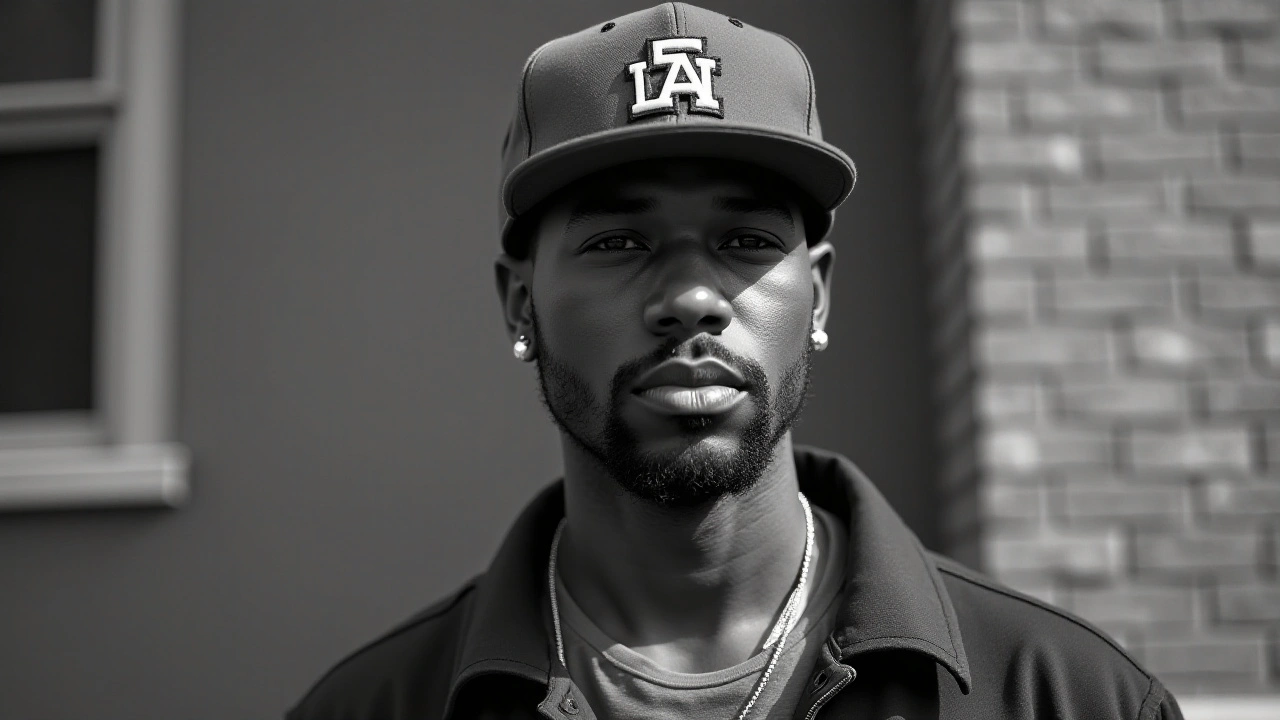The Early Release of Demetrius 'Big Meech' Flenory
Demetrius Edward Flenory, widely recognized as 'Big Meech,' has recently captured the public's attention following his release from prison, a significant development that has rekindled interest in the storied history of the Black Mafia Family (BMF). This notorious drug trafficking network, founded by Flenory and his brother Terry Lee Flenory, known as 'Southwest Tee,' once operated a multi-million-dollar empire that spanned nationwide distribution of cocaine.
Established in the heart of Southwest Detroit in 1985, the BMF quickly grew into one of the most formidable networks on the American drug scene. The enterprise not only amassed colossal profits through illicit drug trafficking but cleverly laundered the proceeds through a number of seemingly legitimate ventures, including the music industry, a testament to the cunning business acumen of its founders. The ambitious rise of the Flenory brothers from gritty streets to affluent heights was propelled by their savvy ability to capitalize on the bustling drug trade of the time. Their empire, reportedly pulling in nearly $270 million, delved deep into the complex networks of Mexico's drug cartels through strategic alliances, further solidifying their stranglehold on the drug markets across the United States.

Legal Battles and Sentencing
In a dramatic fall from grace, the Flenory brothers' sprawling empire crumbled when they were arrested in 2005, spurring a legal saga that would culminate in significant prison sentences. Facing formidable charges, including conspiracy to operate a criminal enterprise and laundering the substantial proceeds of their operations, the brothers pleaded guilty. In 2008, the judicial system dealt a heavy hand to 'Big Meech,' sentencing him to 30 years behind bars as part of a broader effort to dismantle the organization and deter such large-scale drug operations. Despite the severity of his crimes, recent legal proceedings led to a reduction in his sentence, with a federal judge cutting three years from his term in 2024. Originally slated for release in 2025, an unexpected turn saw Flenory released on October 15, 2024. His release was facilitated by considerations for community confinement, a measure that may place him under home confinement or a halfway house until the completion of his sentence, now anticipated on January 27, 2026.

The BMF's Cultural Legacy
The BMF's cultural influence extends beyond its criminal activities into significant contributions to the hip-hop industry. The Flenory brothers established BMF Entertainment as a front to launder money, but it inadvertently became a powerhouse in shaping hip-hop's landscape. It produced and promoted various artists, intertwining criminal influence with pop culture to a captivating degree. This complex duality did not go unnoticed as it caught the attention of entertainment and media moguls, including Curtis '50 Cent' Jackson. His crime series 'BMF' has dramatized the rise and fall of the Flenory brothers, capturing the audience's imagination across three seasons on Starz, attesting to the enduring public fascination with their story. This portrayal showcases the profound impact and grandeur intricately surrounding their activities, bringing their story into homes worldwide.
Implications and Outlook
With Flenory’s early release, discussions about the socio-economic and legal implications surrounding drug trafficking networks resurface. It brings to light the challenging discourse around the rehabilitation and reintegration of individuals who have served time for severe criminal offenses. As 'Big Meech' returns, albeit under community confinement, the societal conversation on justice, redemption, and personal transformation takes center stage. Moreover, the continued cultural representation in media, through series like 'BMF', maintains a significant dialogue around the sensational yet often misunderstood lives of individuals entwined in crime. Widespread public interest persists, not only due to the dramatic elements of their story but because it highlights broader themes of power, corruption, and the ever-relevant fight against organized crime.
The Flenory brothers' saga encapsulates an era often romanticized in popular culture, providing a cautionary tale of ambition and downfall. While Demetrius 'Big Meech' Flenory transitions into this new phase of life post-incarceration, the complexities of his story, and the indelible mark the BMF has left on society, continue to fascinate and stimulate debate. His journey, from the founder of an infamous enterprise to a figure navigating a complex justice system, represents a microcosm of broader existential questions faced by society regarding crime and rehabilitation.
The unfolding journey post-release will be watched closely, not just by those enthralled by the dramatic narratives documented in entertainment but by those keenly observing potential shifts in criminal justice reform and societal reintegration policies. As his story evolves, the public remains attentive, awaiting the impact this transition might have on familial and cultural landscapes and ongoing dialogues on redemption and responsibility.
